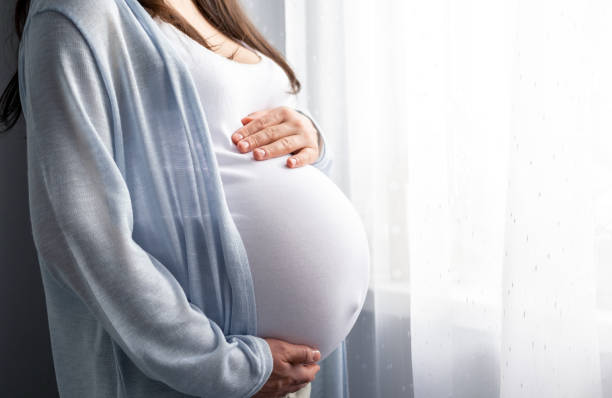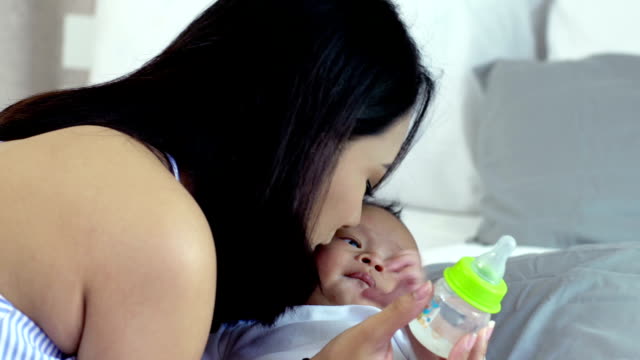In light of recent news about Singaporean women seeking in-vitro fertilization (IVF) treatments in Johor, questions have arisen about the advisability of older women conceiving. The legal age to get pregnant in Singapore is an important factor that often comes into play when discussing this topic.
This article provides insight into the challenges and benefits associated with childbirth at different ages.

Source: Kyaizee Mohd
The Reality of Late Pregnancy

Source: iStock
In medical language, we consider a woman who gets pregnant for the first time at 35 years or older an “elderly primigravida.” We usually treat these women with more caution because late pregnancy carries increased risks. These risks involve conception difficulties, higher probabilities of miscarriage, stillbirth, premature births, and birth defects.
Despite these risks, many women are choosing to have children later in life due to various reasons like career commitments, finding the right partner late, or facing fertility issues early on in marriage. With advancements in science, options like IVF have become increasingly available to couples facing fertility issues. However, should these women be denied the chance to procreate just because of their age?
Pros and Cons of Starting Early

Source: iStock
Speaking from personal experience, having children early certainly has its ups and downs. On one hand, having a child early can put pressure on your career progression and your social life. Your marriage may also face strains as you adjust to your new roles as parents.
On the other hand, starting early brings certain advantages. For one, conception is generally easier at a younger age. Also, while caring for young children can be energy-draining, younger parents are often better equipped to handle this. Financially, starting early means the burden of supporting children through school ends earlier.
Embracing Change and Uncertainty
The journey of parenthood is different for everyone. While some couples start early and enjoy the journey, others may choose or be forced to start late. Regardless of when one chooses to start, it’s important to understand and accept the unique challenges that come with each stage.
The legal age to get pregnant in Singapore allows women the freedom to choose when they want to embark on this journey. However, it’s crucial to make informed decisions and consider the implications carefully.
Growing Up with an Ageing Parent
Parental age can indeed impact a child’s development and experience, but it doesn’t necessarily determine the quality of the parent-child relationship. The age at which one becomes a parent can have both positive and negative effects on the family dynamics and the child’s upbringing.
According to an article on Verywell Family, older parents might have the advantage of experience and knowledge. However, they might also face some increased risks including potential subtle impacts on the child’s development. Another study published on PubMed found that older parents experienced greater parental stress and poorer relationship quality.
In another exploration of parental age in relation to childhood experiences, it was found that older parents experienced more parenting stress and poorer couple relationship quality than younger parents, but no differences were found for child adjustment (ScienceDirect).
But it’s not all about age. Personality, life experiences, the quality of the parent-child relationship and other factors like unconditional love, intentional effort, and a willingness to learn from our mistakes can play significant roles in shaping a child’s upbringing.
For instance, as Moya Sarner shared in her story, she didn’t find it unusual for dads to spend so much time at home with their children, regardless of her father’s advanced age. Despite the potential challenges, the unique perspectives and wisdom that older parents bring into parenting can often be invaluable.
Basically, although health and mobility may decline as a person ages, an older parent can bring stability and accumulated wisdom through diverse life experiences. Modern science has made procreation possible later in life and while things may get a little harder with age, age itself isn’t the determining factor of a meaningful family life.
Parenthood Knows No Age Limits

Source: iStock
In conclusion, the legal age to get pregnant in Singapore is just the beginning of the journey. While assisted reproductive technologies provide opportunities for those who missed the chance earlier in life, age itself isn’t the sole determinant of a fulfilling family life. The keys to successful parenting lie in factors beyond age, encouraging individuals and couples to make informed choices based on their unique circumstances.
Take the Time to Reflect and Choose Wisely
As Singaporean couples navigate the decision to start a family, it’s essential to reflect on personal desires, readiness, and the potential joys and challenges that come with different timelines. Parenthood, regardless of age, is a journey enriched by love, commitment, and a shared willingness to embrace the responsibilities of raising a child.
There’s no perfect time to have a baby. Whether you’re considering starting early or late, it’s important to understand the potential challenges and benefits.
Remember, every journey is unique, and what matters most is that you’re ready and willing to embrace the joys and challenges of parenthood. If you need any support or advice, don’t hesitate to reach out to your healthcare provider or join a parenting support group.
Choose when, how, and why to start a family based on your unique circumstances and aspirations. After all, the legal age to get pregnant is just a number; the real journey begins with the choices you make as parents.
ALSO READ
Teenage Pregnancy In Singapore: The Risks and Options Available to Young Women
Girls Aim To Get Pregnant At the Same Time In Teenage Pregnancy Pact
14 And Pregnant: How Mary Jenkins Survived Being A Single Teenage Mum